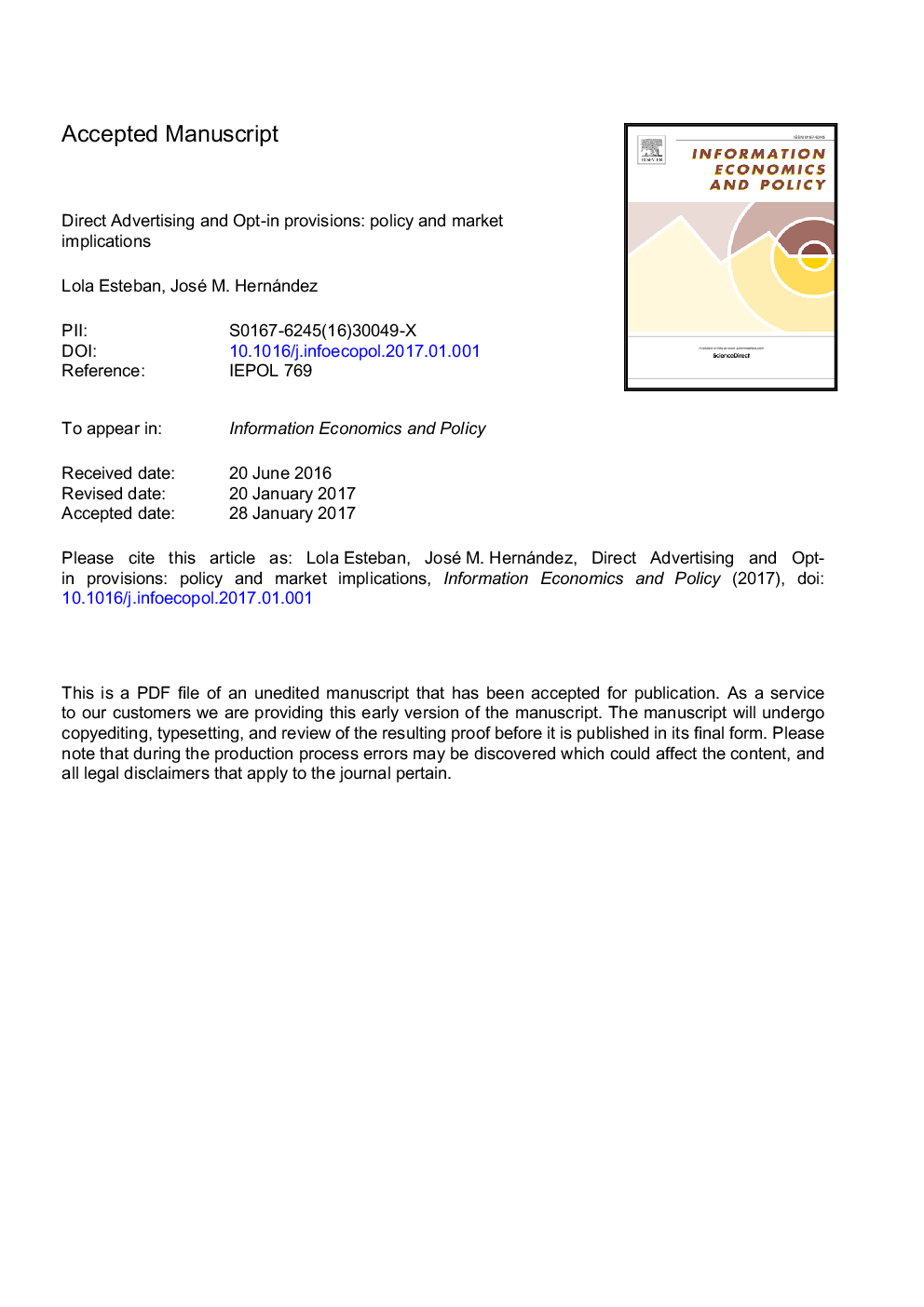ترجمه فارسی عنوان مقاله
تبلیغات مستقیم و مقررات انتخاب: مفاد سیاست و بازار
عنوان انگلیسی
Direct advertising and opt-in provisions: Policy and market implications
| کد مقاله | سال انتشار | تعداد صفحات مقاله انگلیسی |
|---|---|---|
| 111139 | 2017 | 30 صفحه PDF |
منبع

Publisher : Elsevier - Science Direct (الزویر - ساینس دایرکت)
Journal : Information Economics and Policy, Volume 39, June 2017, Pages 15-25
ترجمه چکیده
این مقاله یک بازی قیمت گذاری و تبلیغات تبلیغاتی با محصولات افقی متمایز را تشکیل می دهد که در آن دو شرکت برای اولین بار با تبلیغات گسترده ای رقابت می کنند و بعدها یک پایگاه داده با استفاده از سوابق فروش تاریخی خود رقابت می کنند و هدف قرار دادن تبلیغات به مشتریان بالقوه خود را رقم می زنند. تعامل بازار را تحت دو نوع تبلیغات مستقیم قرار می دهیم: تبلیغات انتخابی، جایی که شرکت ها از مصرف کنندگان برای رضایت خود برای ارسال تبلیغات با اطلاعات در مورد محصولات جدید و تبلیغ مستقیم بدون مجوز استفاده می کنند، جایی که فروشندگان از اطلاعات تماس مشتری بدون رضایت صریح خود استفاده می کنند. ما نشان می دهیم که در مقایسه با مواردی که شرکت ها از رسانه های جمعی استفاده می کنند، استفاده از تبلیغات مستقیم (با اجازه یا بدون مجوز) منجر به انتقال دوباره قدرت بازار از ابتدای به دوره دوم می شود و در مقایسه با تبلیغات انتخاب شده ، تبلیغات مستقیم بدون مجوز در قیمت های پایین تر یا مساوی نتیجه می گیرد. ما همچنین تأثیر یک سیاست نظارتی با هدف محافظت از حریم خصوصی مصرف کنندگان را با ممنوعیت استفاده از تبلیغات مستقیم بدون اجازه به نفع تبلیغ در اختیار قرار می دهیم. ما دریافتیم که این سیاست، رفاه اجتماعی را کاهش می دهد و اگر میزان تمایز محصول به اندازه کافی بالا باشد (نسبت به کم بودن)، سود آن را (نسبت به پایین آوردن) کاهش می دهد و مازاد مصرف کننده را کاهش می دهد (در برابر افزایش).

